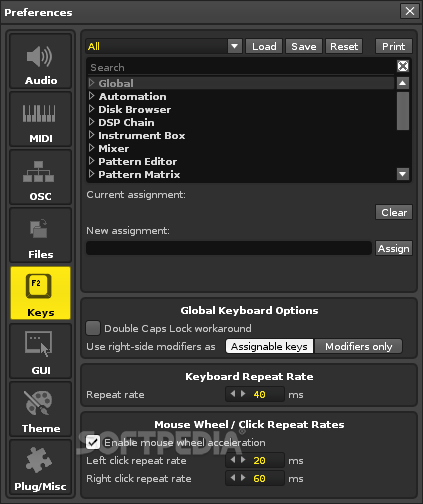

GOATTRACKER RENOISE SOFTWARE
More specifically, the conceptual framework for the study provides a basis for an examination of the ways a software developer firm encourages user participation in a market and of how this enables and facilitates particular modes of user creativity.

The user participation literature is supported by a combination of insights drawn from work on communities of practice and user-centered innovation so as to offer a more robust approach to examine and appreciate the firm-hosted 3D platform as a site of user participation. It builds on insights derived from work on user participation in media sites as seen through a cultural lens, in particular, as developed in Henry Jenkins’ notions of ‘participatory’ and ‘convergence culture’. The thesis mobilizes the user participation literature developing in media research as its main theoretical framework. It aims to investigate whether the creative capacities of users and their contributions to the online firm-hosted 3D platform are indicative of a novel configuration of production that influences the processes of product development across firm boundaries. The thesis is designed to improve our understanding of user participation in Web-based development practices in the commercial setting of the 3D software industry. I call for an expansion of music education discourse and practices to include additional ways of being musical through practices that might borrow from multiple academic disciplines or fields of study for music-related purposes. However, I argue that many of the music-related practices people discussed within are not apparent within music education discourse, curricula, or standards. Findings suggest the revealed themes incorporated practices from a multitude of academic disciplines or fields of study for music-related purposes.

Throughout each of the revealed themes, members engaged in visual art practices, as well as community practices such as collective learning, collaborating, constructive criticism, competitive events, and collective efficacy. Some members engaged in entrepreneurial practices to promote, sell, buy, and trade with other members.

Members also discussed modifying and creating hardware and software for a multitude of electronic devices. Members of primarily discussed composing and performing chiptunes on a variety of instruments, as well as through retro computer and video game hardware. Findings revealed seven interconnected themes of chiptune-related practices: (a) composition practices, (b) performance practices, (c) maker practices, (d) coding practices, (e) entrepreneurial practices, (f), visual art practices, and (g) community practices. The analysis cycle consisted of (a) using corpus analysis techniques to reveal patterns of discourse across and within data consisting of 10,892,645 words, and (b) using discourse analysis techniques for a close reading of revealed patterns. Three research questions guided this study: (1) What chiptune-related practices did members of discuss between December 30th, 2009 and November 13th, 2017? (2) What do discussion forum posts reveal about the multidisciplinary aspects of chiptunes? (3) What import might music-centered making evident within discussion forum posts hold for music education? To address these research questions, I engaged in corpus-assisted discourse analysis tools and techniques to reveal and analyze patterns of discourse within 245,098 discussion forum posts within. This study examined discussion forum posts within a website dedicated to a medium and genre of music (chiptunes) with potential for music-centered making, a phrase I use to describe maker culture practices that revolve around music-related purposes.


 0 kommentar(er)
0 kommentar(er)
